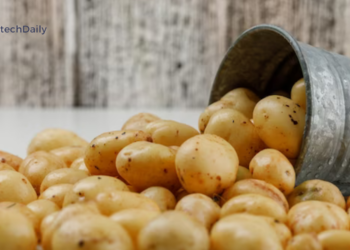In the ever-evolving realm of agriculture, where innovation, sustainability, and knowledge hold the keys to success, colleges for agriculture in India play a pivotal role in shaping the future of the nation’s agrarian landscape. These institutions are the bedrock of agricultural excellence, nurturing the seeds of knowledge and innovation that are sown in the fields of India’s farms.
As we embark on this exploration, we delve into the world of outstanding colleges for agriculture in India, institutions that not only provide comprehensive education but also foster a culture of ingenuity and modernization in farming practices. They are the crucibles where students are molded into the future leaders, researchers, and professionals of Indian agriculture, committed to driving the sector forward.
From pioneering research initiatives to hands-on experiential learning, these colleges are the hothouses where the future of Indian agriculture is cultivated. Join us in uncovering these exceptional institutions that are at the forefront of sowing the seeds of agricultural excellence and nurturing a brighter, more sustainable future for the nation’s farms and farmers.
What are agricultural careers?

Agricultural careers encompass a diverse spectrum of professional paths, offering individuals the opportunity to engage with various aspects of farming, cultivation, animal husbandry, and the entire food and beverage industry. Whether one’s passion lies in working hands-on with crops and livestock, designing cutting-edge agricultural equipment, or delving into the economic and scientific facets of agriculture, the field presents a plethora of rewarding options.
What are the qualifications required to pursue a career in agriculture?
Educational prerequisites for a career in agriculture can vary based on the specific role and field of interest. However, formal education in agriculture can open doors to positions in areas like biodiversity, food security, environmental conservation, and more. For those looking to pursue a career in agriculture, a bachelor’s degree in agriculture or a related discipline is a common starting point. Some popular undergraduate degrees in this domain include:
– B.Sc. in Agriculture: Offering a broad understanding of agricultural principles.
– B.Sc. in Forestry: Focusing on the cultivation and management of forests and natural resources.
– B.Sc. in Animal Husbandry: Specializing in the care and breeding of livestock.
– B.Sc. in Genetic Plant Breeding: Concentrating on the development of crop varieties with desirable traits.
– B.Sc. in Soil and Water Management: Emphasizing sustainable soil and water resource conservation.
While not all agricultural careers have strict educational prerequisites, many employers prefer candidates with a degree in agriculture or a related field from a two-year technical college or a four-year university. For certain roles, such as research scientists and veterinarians, a master’s degree or Ph.D. may be required.
In addition to formal education, hands-on experience is often a crucial component for success in agricultural careers. This experience can be gained through internships, volunteer work, part-time positions, or apprenticeships. Some employers even offer specialized training programs for new employees to help them develop the necessary skills and knowledge for their roles.
Types of agricultural careers

Agricultural careers are as diverse as the field itself, offering a wide array of options for individuals with varying interests and expertise. Here are some examples of different types of agricultural careers:
– Farmer or Rancher: Responsible for the growth and management of crops or livestock, including planting, harvesting, and marketing their products.
– Agricultural Engineer: Designs and develops agricultural equipment and systems, aiming to improve efficiency and sustainability in agricultural operations.
– Agricultural Economist: Analyzes economic aspects of agriculture, identifying trends and making recommendations to stakeholders.
– Soil Scientist: Studies soil properties, working to develop sustainable soil management practices and improve fertility.
– Crop Scientist: Focuses on crop physiology, genetics, and breeding to develop new, productive, and disease-resistant crop varieties.
– Animal Scientist: Studies livestock physiology, nutrition, and breeding to enhance animal production practices and welfare.
– Veterinarian: Diagnoses and treats animal diseases and injuries while providing preventive care.
– Food Scientist: Develops and tests new food products, enhancing their quality, safety, and shelf life.
– Agronomist: Specializes in crop production science, working to improve crop yields and reduce costs through sustainable practices.
– Horticulturist: Concentrates on fruit and vegetable production, improving yields and sustainability in horticulture.
– Agricultural Equipment Technician: Repairs and maintains agricultural machinery, diagnosing issues and ensuring equipment functions properly.
– Agricultural Sales Representative: Sells agricultural products and services, providing technical support and advice to customers.
– Agricultural Marketing Specialist: Develops and executes marketing plans for agricultural products and services, building brand awareness.
These examples represent only a fraction of the numerous agricultural careers available, demonstrating the field’s extensive diversity. With a wide range of options to choose from, there is an agricultural career suited for every individual’s interests, skills, and aspirations.
Top 10 Colleges for Agriculture in India

According to the NIRF (National Institutional Ranking Framework) ranking data for 2023, we present ten outstanding colleges for agriculture in India. Each of these institutions stands tall as a beacon of inspiration and knowledge in the field of agriculture. These colleges are the nurturing grounds for the future pioneers of agriculture, cultivating the seeds of agricultural greatness and sowing the path to a prosperous agricultural landscape.
- Indian Agricultural Research Institute (IARI), New Delhi
At the heart of agricultural research and innovation in India lies the Indian Agricultural Research Institute (IARI) in New Delhi. Since its inception in 1905, it’s been one of the best colleges for agriculture, it has been a light of inspiration for countless agricultural enthusiasts. Its commitment to cutting-edge research and transformative technologies has paved the way for agricultural advancements in the country. As students walk the halls of IARI, they breathe in the spirit of excellence, knowing they are the torchbearers of India’s agricultural future.
- ICAR – National Dairy Research Institute, Karnal
Nestled in the fertile lands of Karnal, the ICAR – National Dairy Research Institute (NDRI) is a symbol of dairy excellence in India. Founded in 1923, this institute has been instrumental in revolutionizing the dairy sector through groundbreaking research and innovations. As students graze the pastures of NDRI, they are inspired by the vision of building a nation with abundant dairy prosperity and nourishment.
- Punjab Agricultural University, Ludhiana
The lush fields of Ludhiana embrace the prestigious Punjab Agricultural University (PAU), an institution that has been instrumental in transforming Punjab’s agricultural landscape. Since its establishment in 1962, PAU has been a powerhouse of agricultural education, research, and extension services. As students plough the furrows of knowledge at PAU, they sow the seeds of a bountiful and sustainable future for Punjab’s farmers.
- Banaras Hindu University (BHU), Varanasi
As the Ganges flows gently by, Banaras Hindu University (BHU) in Varanasi stands tall as an oasis of agricultural wisdom. Established in 1916, BHU’s Faculty of Agriculture has been nurturing generations of agricultural leaders. With a commitment to holistic development and transformative education, BHU inspires its students to embark on a journey of agricultural enlightenment and service to the nation.
- Tamil Nadu Agricultural University (TNAU), Coimbatore
In the southern embrace of Coimbatore, Tamil Nadu Agricultural University (TNAU) flourishes as a hub of agricultural excellence in South India. Since 1971, TNAU has been the cradle of agricultural knowledge, producing leaders who bring sustainable practices to life. As students cultivate their dreams at TNAU, they imbibe the essence of agricultural sustainability, nurturing the earth and uplifting communities.
- Indian Veterinary Research Institute (IVRI), Izatnagar
The Indian Veterinary Research Institute (IVRI) in Izatnagar, established in 1889, holds the distinction of being one of the oldest veterinary research institutes in Asia. As an institution dedicated to animal health and welfare, IVRI inspires students to tread the path of compassion and scientific rigour. As they heal and protect the voiceless creatures of the earth, they leave an indelible mark on the annals of veterinary science.
- Central Institute of Fisheries Education (CIFE), Mumbai
In the coastal city of Mumbai, the Central Institute of Fisheries Education (CIFE) holds the mantle of fisheries excellence. Since 1961, CIFE has been a guiding light for fisheries research, education, and training. As students dive deep into the world of aquatic wonders, they emerge as guardians of marine biodiversity, fostering sustainable fisheries for generations to come.
- Fisheries University, Kochi
Nestled in the backwaters of Kochi, the Fisheries University stands as a symbol of aquatic wisdom and maritime prosperity. As students sail through the waters of fisheries education, they discover the vast potential of aquaculture and marine sciences. With a commitment to preserving our oceans and feeding the world sustainably, they embrace their roles as stewards of the seas.
- G.B. Pant University of Agriculture and Technology, Pantnagar
The sprawling fields of Pantnagar in Uttarakhand cradle the G.B. Pant University of Agriculture and Technology, a pioneer in agricultural education and research. Since its establishment in 1960, Pantnagar has been a nurturing ground for agricultural innovators. As students plant the seeds of agricultural ingenuity, they reap the harvest of a greener and more prosperous tomorrow.
- Sher-e-Kashmir University of Agricultural Science & Technology of Kashmir (SKUAST), Srinagar
Amidst the breathtaking landscapes of Srinagar, Sher-e-Kashmir University of Agricultural Science & Technology (SKUAST) cultivates the spirit of resilience and growth. Founded in 1982, SKUAST inspires its students to embrace the challenges of agriculture in the mountainous region. As they walk the picturesque valleys, they sow the seeds of hope and progress for the farmers of Kashmir.
In the vast fields of Indian agriculture, these ten outstanding colleges stand tall as pillars of inspiration and excellence. As students walk through their campuses, they carry the weight of responsibility and the light of hope for a sustainable and prosperous agricultural future.
Conclusion
In the fertile landscape of Indian agriculture, the role of colleges for agriculture stands out as paramount. These institutions, with their rich traditions, dedication, and commitment to excellence, have become the bedrock of agricultural education and innovation in the country.
As we conclude our exploration of these outstanding colleges for agriculture, it is evident that they are not just centers of learning; they are the vanguards of progress in Indian agriculture. Their continuous efforts in research, technology adoption, and skill development are instrumental in shaping the future of farming and agribusiness in India.
These colleges for agriculture, often nestled in the heartlands of the nation, are nurturing a new generation of agriculturists, researchers, agrotechs and agri-entrepreneurs. They provide the knowledge and tools needed to navigate the challenges and seize the opportunities in this dynamic field. With a focus on sustainable practices and modernization, they are helping to ensure that India’s agriculture remains vibrant, resilient, and globally competitive.
In sum, the commitment and excellence exhibited by these colleges for agriculture are not only shaping the future of Indian farming but are also contributing to the nation’s food security, economic growth, and global recognition as a leader in agriculture and agribusiness.







